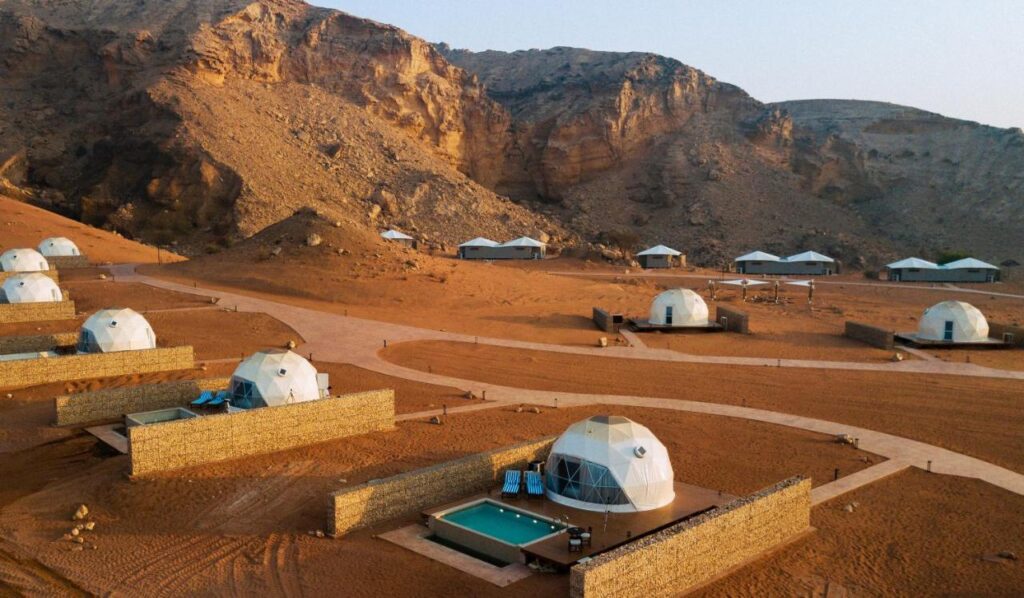Skift Take
45 minutes from the center of Dubai is Sharjah, an emirate that isn’t trying to turn heads like its neighbors do.
Sharjah, one of the seven emirates in the UAE, is less than an hour from the super-modern Downtown district of Dubai. But unlike Dubai and other emirates, Sharjah is focused on becoming the national center of cultural tourism – it favors tents, camps and eco-resorts over mega-structures.
Khawla Al Hashimi, Chief Projects Officer of the Sharjah Investment and Development Authority (Shurooq) said at a Dubai event this month the idea is to be “invisible.”
She said: “I’m probably the only architect who will say our goal is to be invisible. Our goal is for the development to be invisible. We step back and we stop saying how many keys a project will have, or if it will have the longest I don’t know what. Once we step back from that [ideology], we can look at genuine experiences.”
As a government entity, Shurooq has access to the best plots of land in the emirate, on which it is creating hospitality projects like the Moon Retreat camp and protected nature reserves.

Al Hashimi added: “Where Sharjah is most different is in this: We don’t look at sustainability as an added step in a project. We look at it holistically. With the land we have, there are sensitive areas we have to enhance.”
Sharjah’s Tourism Growth
While its tourism market is significantly smaller than Dubai’s, Sharjah has seen growth this year. The emirate had just over a million hotel guests through August this year, according to the Sharjah Commerce and Tourism Development Authority.
Over those eight months, Russia was the top source market for Sharjah, contributing 21% of all hotel guests, which amounted to around 160,000 visitors. Other major markets included the UAE (11%), India (10%), and Oman (6%).
Sharjah is the most conservative of the seven emirates and the only one that still outlaws alcohol. This is in stark contrast to the rest of the country, which is becoming more and more Western, notably giving the green light for casinos earlier this month.
Sharjah discovered oil in the 1970s, leading to a surge in development. Today, leaders are focused on preserving large portions of the emirate through the “Heart of Sharjah” project, aimed at restoring narrow, traditional alleys, souks, and other historic structures.
While you could call Sharjah the polar opposite of Dubai just next door, the more modern emirate is also trying to develop more cultural tourism offerings.
Issam Kazim, CEO of Dubai Tourism, at the Skift Global Forum 2024 last month that the city will rely less on its famous landmarks and celebrity campaigns, in favor of a more authentic tourism experience.
“I think initially Dubai started off… we needed to create enough noise to get attention, we needed landmark projects, 7-star hotels, islands. It did a great job to get people into the city, but it started to make people feel Dubai was just about new buildings and high-end luxury,” said Kazim.

